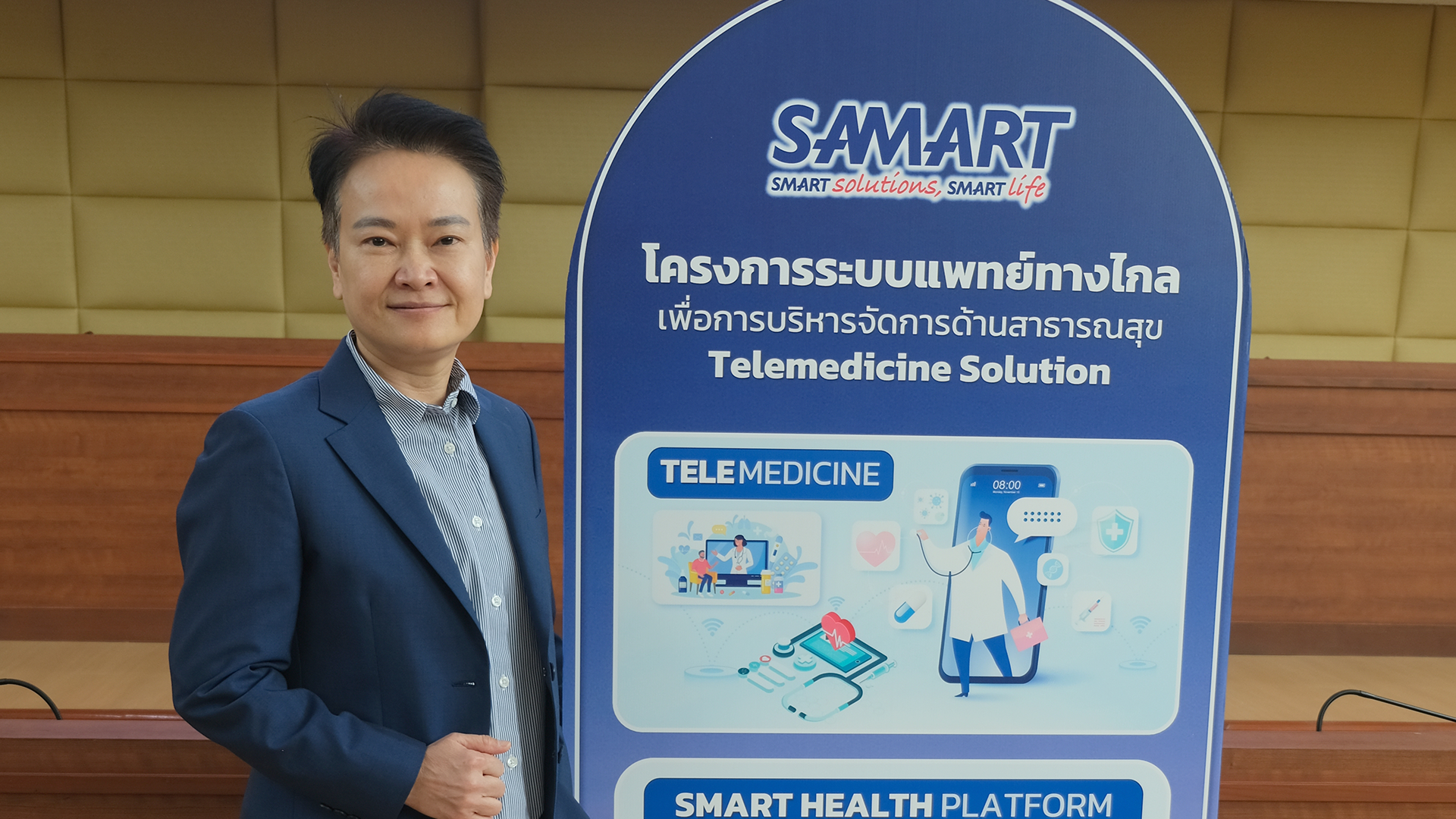The Suphan Buri Provincial Administrative Organization and Samart Comtech under Samart Telcoms Group conducted a pilot testing of Telemedicine systems in five Health Promoting Hospitals in Suphan Buri province.
The Telemedicine system was provided under a Memorandum of Cooperation (MoC) signed by the Suphan Buri Provincial Administrative Organization and Samart Comtech to support the Suphan Telemedicine Solution Project. The project is aimed to uplift the public health management and healthcare service provision of the Health Promoting Hospitals under the Suphan Buri Provincial Administrative Organization.
Ms. Chotika Kamloonwesaruch, the Managing Director of Samart Comtech, said this cooperation will level up the provincial public health management and service provision through the adoption of Telemedicine technology. The technology will be used to support the village health volunteers to provide more efficient and faster healthcare services to people in the communities.
As a specialist in providing information and communication technology services for large enterprises, Samart Comtech designed and installed the Smart Health Platform and began the pilot test of Telemedicine system in five Health Promoting Hospitals including Ban Samakkhitham Health Promoting Hospital; Ban Huai Haeng Health Promoting Hospital; Ong Phra Health Promoting Hospital; Ban Hua Wang Health Promoting Hospital; and Chorakae Sam Phan Health Promoting Hospital.
During the pilot test, the Suphan Buri Provincial Administrative Organization will evaluate the results and will make further consideration to expand the Telemedicine Solution Project to cover the other 174 Health Promoting Hospitals under the Suphan Buri Provincial Administrative Organization.
“This cooperative project is in line with Samart Telcoms Group’s sustainability policy, aiming to improve Thai people’s quality of life and strengthen their technology knowledge and equal accessibility in using digital services,” Ms. Chotika said.


